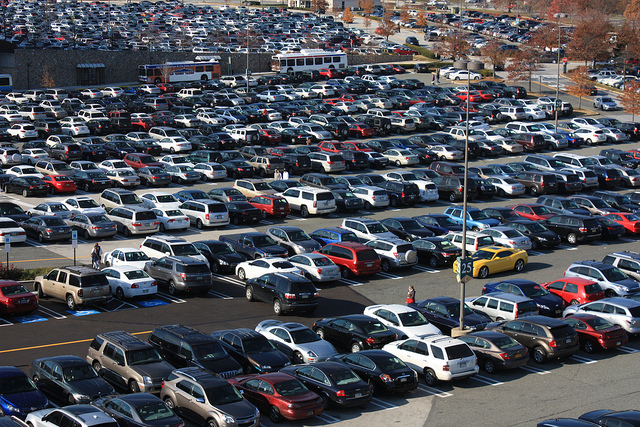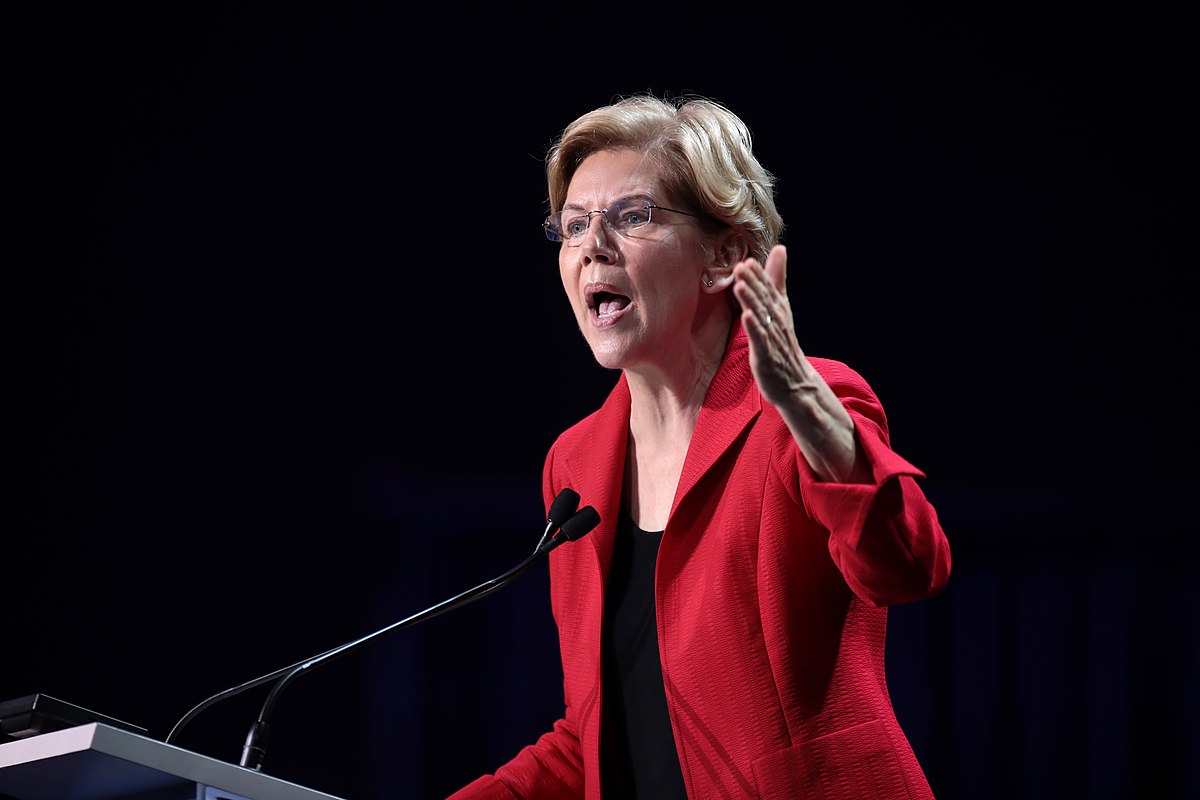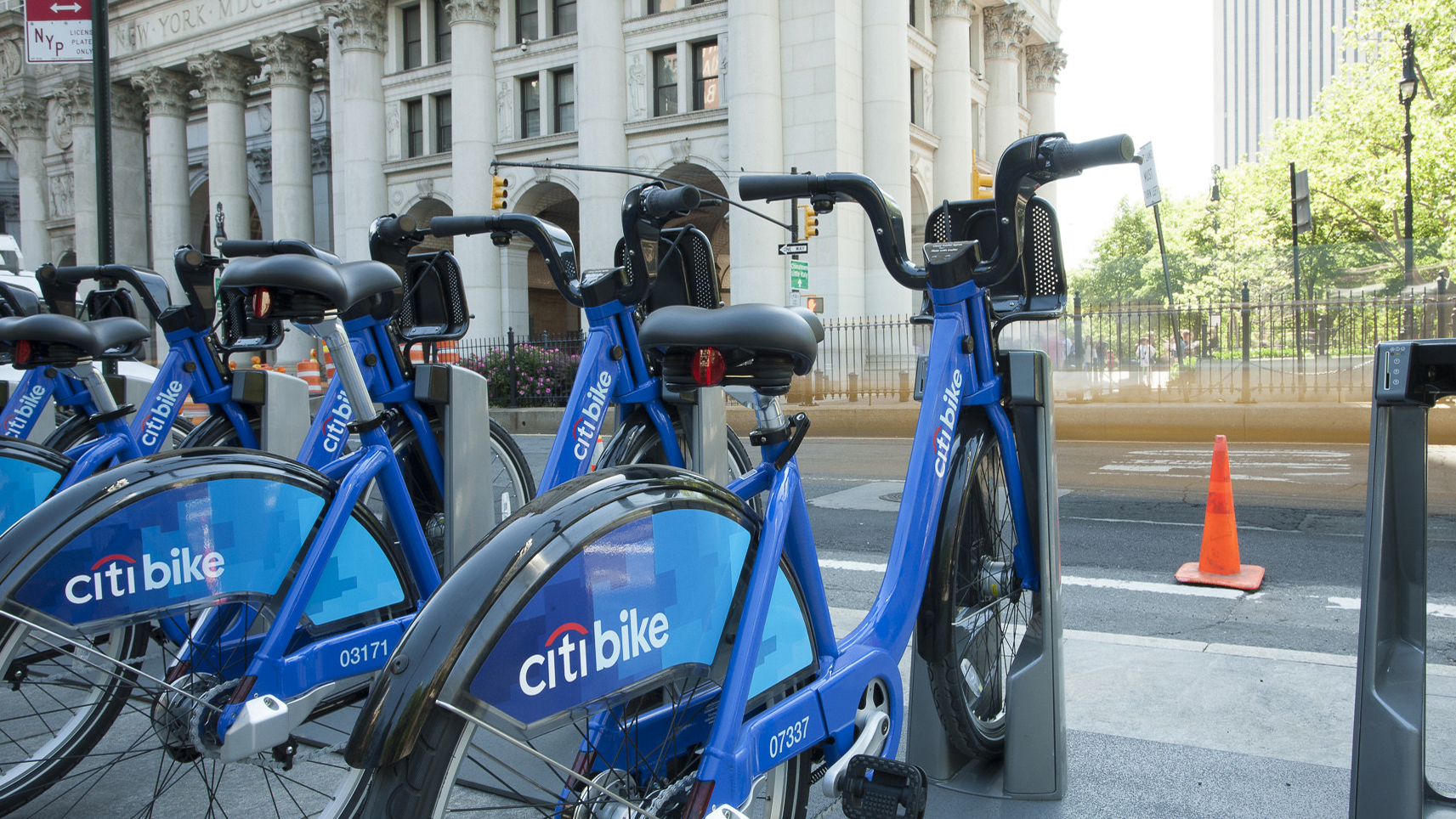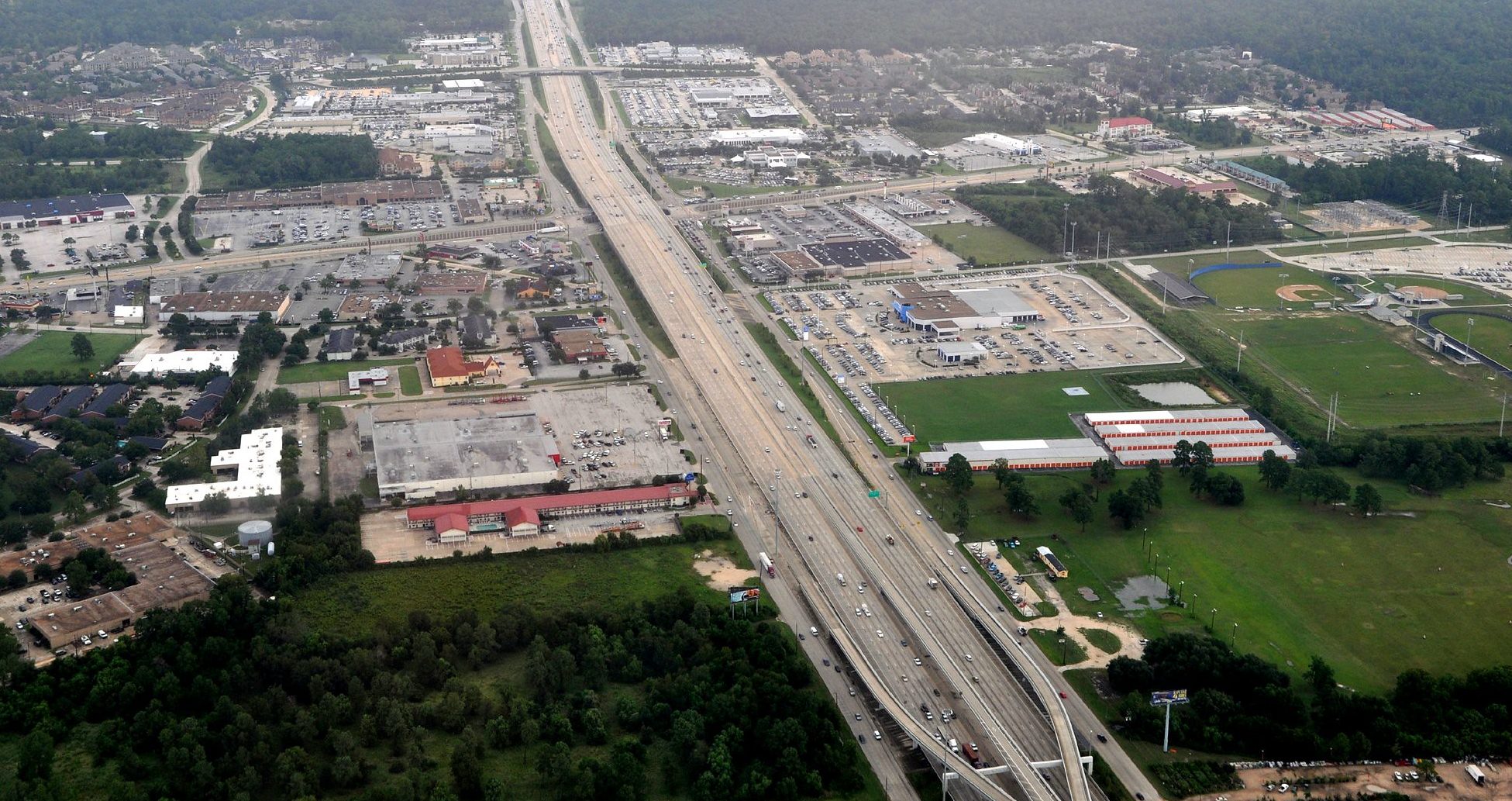Most parking spots might cost you nothing, but parking is never really free. We just pay for it in ways that are completely divorced from our actual consumption of parking.
Instead of paying directly for parking, the costs are almost always bundled into the price of other things we consume. These costs are very real -- it takes a lot of land, material, and labor to build and maintain parking spaces -- but in the name of cheap driving, we've made them invisible. Everything else costs more so that driving can cost less.
Pricing a good this way produces what economists call a market distortion. Because the price of parking is hidden, Americans purchase more parking than we would if we paid for it directly.
Let's say, for example, that the rent for an apartment also includes a parking space that costs $100 a month. The parking appears to be free, but if the rent was reduced by $100 a month and the parking was sold separately, how many people would still pay for it? Some would choose to pay for car storage and others would not -- the net result would be less parking consumption than when the price of parking is hidden.
All these hidden parking costs add up to a huge subsidy for cars and driving.
In a new report, Todd Litman, a transportation economist who studies the effects of subsidies for parking and roads at the Victoria Transport Policy Institute in British Columbia, estimates that the annualized cost of land, construction, maintenance, and operations per parking space in the U.S. comes out to $600 [PDF]. Since there are about four parking spaces per vehicle in America, the cost per car is $2,400 each year.
But most parking is "free," so Americans only spend about $85 annually on parking per vehicle, according to Litman, meaning the annual parking subsidy per vehicle is more than $2,300. That exceeds what Americans spend on fuel.
"The implications are huge," Litman told Streetsblog.
If we paid for parking directly instead, Litman projects that Americans would drive about 16 percent less. That equates to about 500 billion fewer miles per year.
Transportation is now the largest source of greenhouse gas emissions in the nation. Pricing parking, on its own, could make a significant dent in the nation's carbon pollution, not to mention the terrible loss of life on the roads.
It should be noted that Litman considers this to be a conservative estimate of America's cumulative parking subsidy, which doesn't account for the full value of all on-street parking spaces or the environmental degradation caused by parking facilities. Incorporating those costs too would lead to a 20 percent reduction in traffic, he estimates.
Parking is one of the larger hidden subsidies for driving in the U.S., but it's not the only one. If America priced roads, fuel, insurance, and other components of the vehicular transportation system to account for the full costs of congestion, car crashes, infrastructure wear-and-tear, emissions, and other impacts, Litman projects that traffic would fall about 43 percent.





